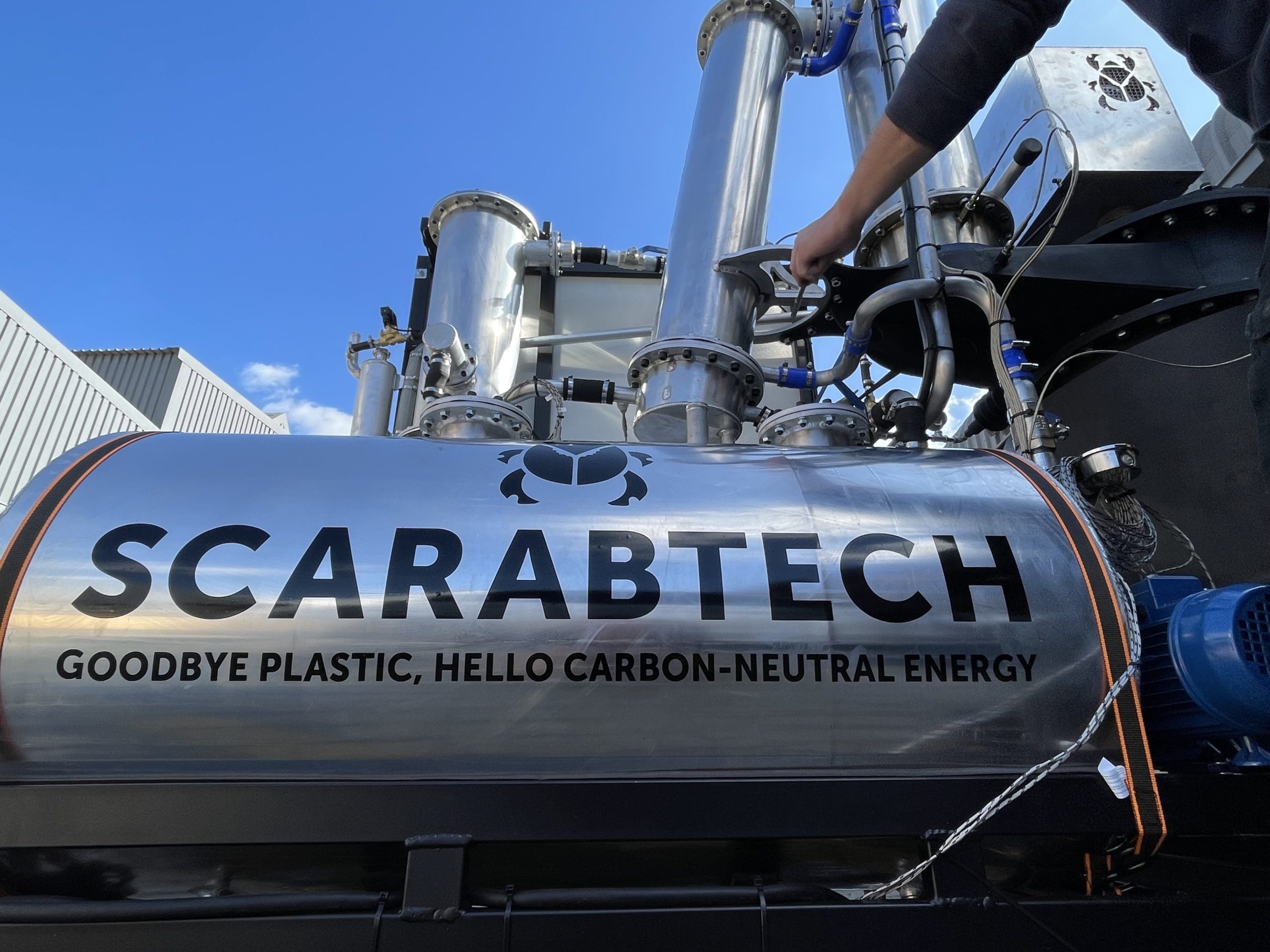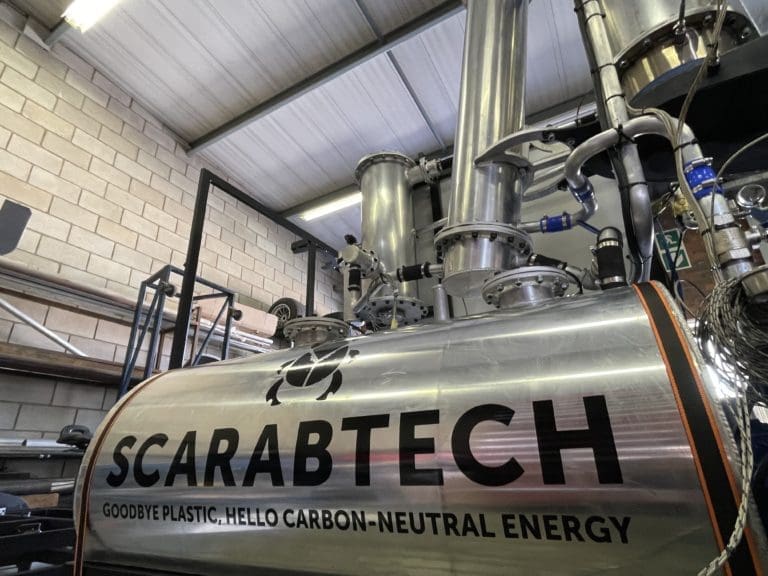Clean technology startup ScarabTech has announced today the successful raise of seed funding from the GIIG Africa Fund. The investment marks the company’s first equity-led round following initial funding from various angel investors, with the capital to be used to finance the development of several commercial projects across Africa, Asia and the Australian subcontinent over the coming year.
Founded in 2018, ScarabTech specialises in the production of small-scale and highly efficient plastic-to-energy units called ‘Beetles’.
Developed using special software algorithms and design, these machines heat plastic waste, creating a vapor that is then captured and reconstituted into carbon-neutral fuel that can power the same generators and engines everyone uses today. In this way the technology seeks to simultaneously address the burgeoning impact that single-use plastics have on the health of both local communities and the environment, while also creating a sustainable source of energy and job creation to address energy poverty and power micro-economies in under-served communities across southern Africa and the globe.
This latest raise comes as ScarabTech was named the African regional winner of the Environmental, Social & Governance (ESG) Tech category at this year’s Global Startup Awards (GSA) Africa in Cape Town, South Africa.
The GSA is the largest independent startup ecosystem competition on the continent and an exclusive vehicle for the GIIG Africa Fund to find, fund and scale Africa’s most innovative startups with Sustainable Development Goal (SDG)-aligned clean energy solutions.
“This round of equity-led investment is a significant achievement for the team, and will help us prove out our technology for global distribution. Previously we were angel funded between 2018 and 2022,” notes Jeffrey Barbee, a co-founder and the CEO of ScarabTech.
“The Awards happened just as our first Beetle machines were being deployed, and GSA gave us a strong platform to amplify the awareness of our company, helping repay the belief of our initial investors while providing a gateway to access future funding. Now, we aim to expand our portfolio of real-world commercial projects, with partners like French-based Plastic Odyssey, a global expedition that uses our Beetle on their ship to show people around the world how to add value to plastic pollution. We are also excited to work with Plastics Pirate in Australia, who are already using our technology to clean up plastic pollution threatening the Great Barrier Reef.”
With the insights gained from these projects, Barbee says that the investment secured from GIIG Africa will be used to help the startup finalise the Beetle reference design and prepare to begin commercial production by December 2023.
He adds that: “These projects, and other in the field, are validating our business model and technology in its intended operating environment, a crucial step before we scale the business to start making an impact in the fight against plastic waste. This GIIG funding has made all of this possible.”
The ScarabTech solution comes as approximately 6.3 million metric tonnes of plastic waste are generated each year, of which less than 11% is recycled annually[i]. If current production and waste management trends continue, annual production is set to more than double by 2050 – posing a significant threat to the health of both human settlements and the environment, affecting industries like tourism, infrastructure development, agriculture and fishing[ii].


In addition, Africa’s battle for energy security amid rising population growth, sluggish economic development and climate change has highlighted the need for alternative and ‘greener’ sources of fuel, with ScarabTech’s modular concept providing a local source of power and job creation for local communities battling the dual problems of plastic pollution and energy security.
“Globally, we are seeing a greater appetite for ESG-related investments in the technology sector, as markets across the globe see innovation as an important vehicle for addressing key challenges relating to global warming and renewable energy,” says Jo Griffiths, Co-founder of GIIG Africa.
“But in Africa – a continent home to startups like ScarabTech, which are developing impact-orientated solutions that create real value for local communities on the periphery – we’re not seeing enough investment into these sectors, and so we have made it our mission to lead the charge in this regard. Today we are incredibly excited to welcome Jeffrey and the team to our portfolio and we look forward to helping them take their Beetles to the world.”
To identify, support and scale likeminded solutions to Africa’s sustainable development, GSA Africa has also announced the launch of the next season of the African Startup Awards, with nominations closing on 18 January 2023.
[i] https://www.science.org/doi/10.1126/sciadv.1700782
[ii] https://wwfafrica.awsassets.panda.org/downloads/wwf_plastic_pollution.pdf
